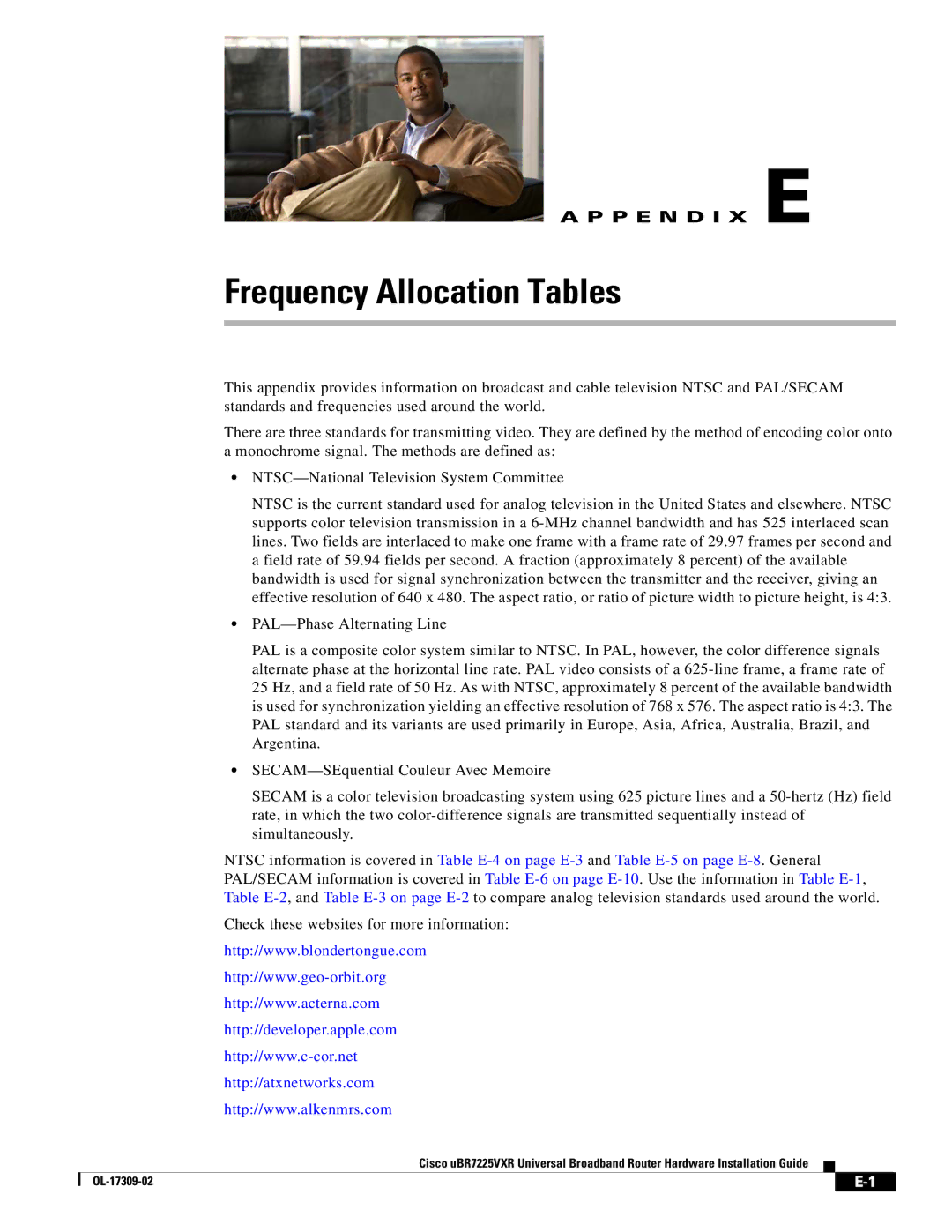A P P E N D I X E
Frequency Allocation Tables
This appendix provides information on broadcast and cable television NTSC and PAL/SECAM standards and frequencies used around the world.
There are three standards for transmitting video. They are defined by the method of encoding color onto a monochrome signal. The methods are defined as:
•NTSC—National Television System Committee
NTSC is the current standard used for analog television in the United States and elsewhere. NTSC supports color television transmission in a 6-MHz channel bandwidth and has 525 interlaced scan lines. Two fields are interlaced to make one frame with a frame rate of 29.97 frames per second and a field rate of 59.94 fields per second. A fraction (approximately 8 percent) of the available bandwidth is used for signal synchronization between the transmitter and the receiver, giving an effective resolution of 640 x 480. The aspect ratio, or ratio of picture width to picture height, is 4:3.
•PAL—Phase Alternating Line
PAL is a composite color system similar to NTSC. In PAL, however, the color difference signals alternate phase at the horizontal line rate. PAL video consists of a 625-line frame, a frame rate of 25 Hz, and a field rate of 50 Hz. As with NTSC, approximately 8 percent of the available bandwidth is used for synchronization yielding an effective resolution of 768 x 576. The aspect ratio is 4:3. The PAL standard and its variants are used primarily in Europe, Asia, Africa, Australia, Brazil, and Argentina.
•SECAM—SEquential Couleur Avec Memoire
SECAM is a color television broadcasting system using 625 picture lines and a 50-hertz (Hz) field rate, in which the two color-difference signals are transmitted sequentially instead of simultaneously.
NTSC information is covered in Table E-4 on page E-3and Table E-5 on page E-8. General PAL/SECAM information is covered in Table E-6 on page E-10. Use the information in Table E-1, Table E-2, and Table E-3 on page E-2to compare analog television standards used around the world.
Check these websites for more information:
http://www.blondertongue.com
http://www.geo-orbit.org
http://www.acterna.com
http://www.c-cor.net
http://www.alkenmrs.com
Cisco uBR7225VXR Universal Broadband Router Hardware Installation Guide

